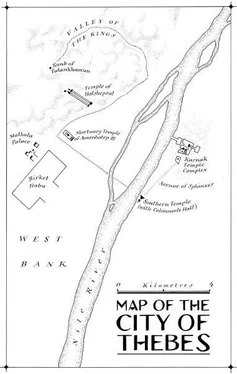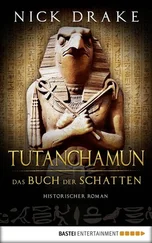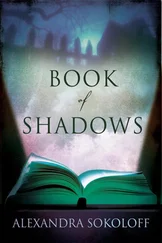Nick Drake - Tutankhamun - The Book of Shadows
Здесь есть возможность читать онлайн «Nick Drake - Tutankhamun - The Book of Shadows» весь текст электронной книги совершенно бесплатно (целиком полную версию без сокращений). В некоторых случаях можно слушать аудио, скачать через торрент в формате fb2 и присутствует краткое содержание. Жанр: Исторический детектив, на английском языке. Описание произведения, (предисловие) а так же отзывы посетителей доступны на портале библиотеки ЛибКат.
- Название:Tutankhamun: The Book of Shadows
- Автор:
- Жанр:
- Год:неизвестен
- ISBN:нет данных
- Рейтинг книги:4 / 5. Голосов: 1
-
Избранное:Добавить в избранное
- Отзывы:
-
Ваша оценка:
- 80
- 1
- 2
- 3
- 4
- 5
Tutankhamun: The Book of Shadows: краткое содержание, описание и аннотация
Предлагаем к чтению аннотацию, описание, краткое содержание или предисловие (зависит от того, что написал сам автор книги «Tutankhamun: The Book of Shadows»). Если вы не нашли необходимую информацию о книге — напишите в комментариях, мы постараемся отыскать её.
Tutankhamun: The Book of Shadows — читать онлайн бесплатно полную книгу (весь текст) целиком
Ниже представлен текст книги, разбитый по страницам. Система сохранения места последней прочитанной страницы, позволяет с удобством читать онлайн бесплатно книгу «Tutankhamun: The Book of Shadows», без необходимости каждый раз заново искать на чём Вы остановились. Поставьте закладку, и сможете в любой момент перейти на страницу, на которой закончили чтение.
Интервал:
Закладка:
After three days’ sailing we neared the almost-deserted city of Akhetaten. I stood at the prow to observe the range of broken red and grey cliffs behind the city. Just a few years ago this had been the site of Akhenaten’s great experiment: a new, bright, white capital of the future; great towers, open sun-temples, offices and suburbs of luxurious villas. But since the death of the King’s father, the bureaucracies had gradually returned to Thebes or Memphis. And then plague had arrived like a curse of revenge, killing off hundreds who had remained, many of them with no work and nowhere else to go. It was said this plague had also killed the other daughters of Akhenaten and Nefertiti, for they had disappeared from public life. Now, aside from a basic staff, the city was said to be largely abandoned, flyblown and falling into dereliction. But to my surprise, and interest, Simut informed me of the King’s great desire to visit the city.
And so it was, early the next morning, just as the first birds began to sing, and the river mist drifted insubstantial and chilly over the sinuous currents of the dark water, and while the shadows of the night still lay long upon the ground, we stepped-accompanied by a troop of guards-from our moored ship on to the dry land of history.
With the King in his white robes and Blue Crown carrying a gold walking stick topped with a glass knob, and a troop of front and rear guards in their armour carrying polished weapons to scare away any peasant sightseers dazzled by this unexpected visitation from another world, we set off towards the central city via deserted footpaths that had, just years before, been busy thoroughfares. As we entered the precincts of the city, I saw at once the effects of its abandonment: the walls, once freshly painted, were now faded to dusty greys and browns. The once carefully planted, stylish gardens were now wildly overgrown, and the pools of the rich were cracked and empty. A few bureaucrats and servants still walked to work on these deserted ways; but they seemed to move in a desultory fashion, and they stopped still in astonishment to stare at our group, before falling to their knees as the King passed by.
Finally we stood upon the royal road. The sun’s rays had now risen over the horizon, and instantly it was hot. Once an immaculately swept ceremonial way for the arrival of Akhenaten and the royal family in their gold chariots, the road was now an empty pathway for ghosts and the dusty wind. We came to the first pylon of the Great Aten Temple. The soaring mud-brick walls were crumbling. The long, bright flags, which had once fluttered in the northern breeze, were tattered and faded to no colour by the bleaching power of the sun. The high wooden gates hung loosely on their rusted hinges. One of the guards forced them open, with a reluctant creaking and cracking of desiccated wood. We passed through into the vast courtyard. Once it would have been crowded with hundreds of offering tables, attended by thousands of worshippers in their bright white robes, their hands raised in the new ritual to the sun, holding up fruit and flowers, and even babies, for the blessing of the evening rays. The many stone statues of Akhenaten and Nefertiti still stared across the vast space, but all there was to see now was dereliction; the failure of their great vision. One or two of the statues had fallen, and lay face down or face up, staring blindly at the sky.
The King moved ahead, making clear he wished to have some moments of privacy. As we hung back, trying to keep watch, Simut whispered: ‘The whole city’s turning back into dust.’
‘I suppose that’s all it ever was.’
‘Just add water,’ he joked, sombrely.
I grinned at this surprising moment of wit. He was right. Just add water, and make mud; dry the bricks in the sun, then add plaster and paint, and timber and copper from the island of Alashiya, and gold from the mines of Nubia, and years of labour, of blood and sweat and death, from everywhere else-and behold: a vision of heaven on earth. But there had been neither sufficient time nor treasure to build the vision in eternal stone, and so now it was returning to the dust of its making.
The King was standing before a great stone statue of his father. The statue’s angular features were chiselled by shadows; all the lineaments of power were embodied in those strange features. Once they had been the epitome of kingship. But now the very style, with its strange, ambiguous elongations, had become a thing of the past. The young King’s face was enigmatic as he stood, small, human and frail, before the might of his stone father, among the desolate ruins of his father’s great vision. And then he did a strange thing: he sank down on his knees, and venerated the statue. We watched, and wondered whether we should join him. But none of his entourage seemed willing to do so. I moved towards him, and held a sunshade over his head. When he looked up, I saw his eyes were full of tears.
We toured the city’s palaces, stepping across the strange evidence of former human occupation: single dusty sandals; pieces of faded clothing; broken jugs and hollow wine jars, their contents long evaporated; small domestic things, cups and dishes still unbroken but full of little drifts of sand and dust. We wandered through high, decorated halls once home to glorious affluence and exquisite music, and now to nesting birds, snakes, rats and woodworm. Beneath our feet, exquisite painted floors of water-gardens full of glazed fish and birds were faded and cracked by time’s careless attrition.
‘I find I am suddenly remembering things I had forgotten. I was a boy here. I grew up in the Northern Riverside Palace. But now I remember being brought to this chamber.’ The King spoke quietly, as we stood in the hall of the Great Palace near the river. The long beams of the morning sun slanted in, dusty and strong. A multitude of graceful columns supported the lofty ceiling still vividly decorated with the indigo of the night sky and the glittering gold of the stars.
‘My father rarely spoke. I lived in awe of him. We sometimes worshipped together. Occasionally I would be brought to see him by myself. It was always a special occasion. I would be dressed formally, and carried along many corridors full of silence and alarming, gloomy, ugly old men who bowed low to me, but never spoke. And then I would be ushered into his presence. Often he would leave me to stand waiting for some time before he decided to notice me. I dared not move. I was frightened.’
I was not quite sure what to do with this unexpected confession. So I returned the compliment.
‘My own father is also a quiet man. He taught me to fish. When I was a child we would drift along the riverbank for many hours at dusk on a reed boat, our lines in the water, neither of us speaking, enjoying the silence.’
‘That is a good memory,’ he said.
‘It was a simple time.’
‘“ A simple time …”’
He repeated the words with a strange nostalgia, and I felt sure he had never had a simple time in his life. Perhaps it was what he most desired; as the poor desire great riches, so the rich, in their appalling ignorance, believe they desire the simplicity of poverty.
The King was staring up at the Window of Appearances where his father had once stood, high above his people, passing down gifts of treasure and collars of honour. Above the window was a carving of the disc of the Aten, and the many rays of the sun radiated like slender arms, some ending in a delicate hand offering the Ankh of Life. But the window was empty now, with no one left to give or receive such blessings.
‘I remember this hall. I remember a great crowd of men, and a long silence. I remember everyone staring at me. I remember…’
He stopped, uncertainly. ‘But my father was not here. I remember I was looking for him. Instead there was Ay. And I had to walk through the crowd into that chamber, with him.’
Читать дальшеИнтервал:
Закладка:
Похожие книги на «Tutankhamun: The Book of Shadows»
Представляем Вашему вниманию похожие книги на «Tutankhamun: The Book of Shadows» списком для выбора. Мы отобрали схожую по названию и смыслу литературу в надежде предоставить читателям больше вариантов отыскать новые, интересные, ещё непрочитанные произведения.
Обсуждение, отзывы о книге «Tutankhamun: The Book of Shadows» и просто собственные мнения читателей. Оставьте ваши комментарии, напишите, что Вы думаете о произведении, его смысле или главных героях. Укажите что конкретно понравилось, а что нет, и почему Вы так считаете.











